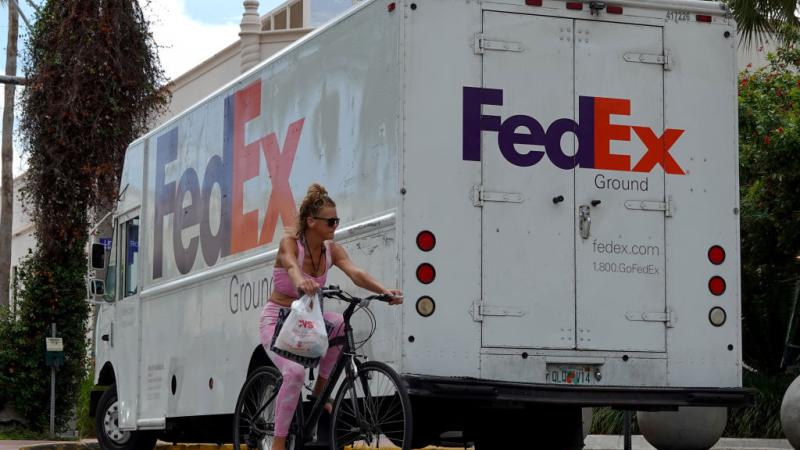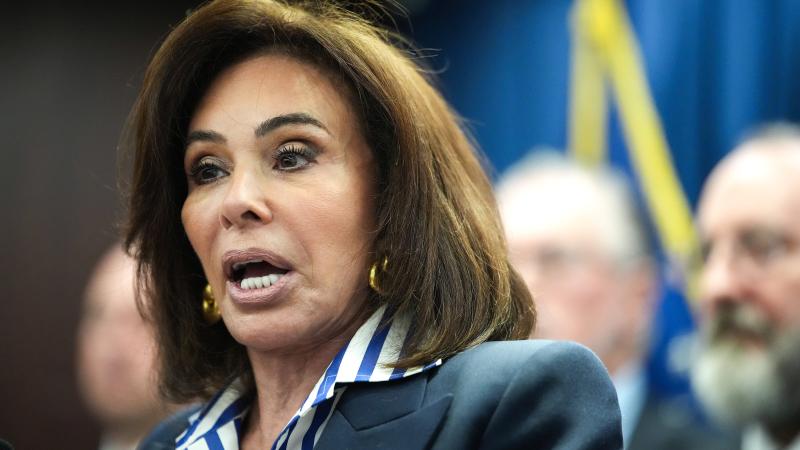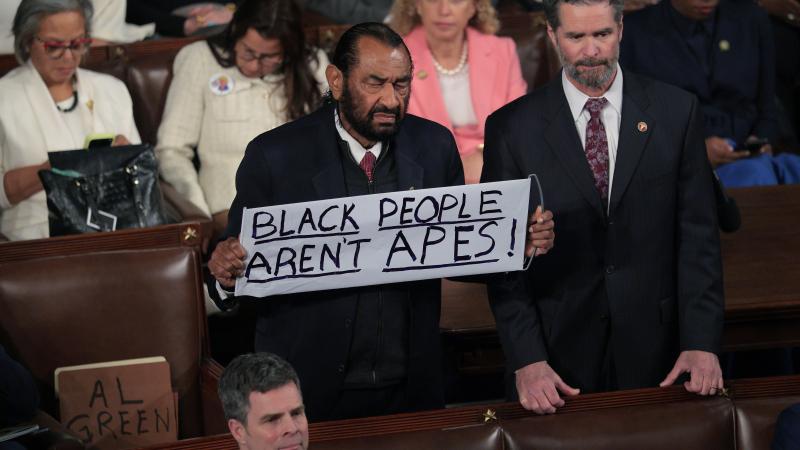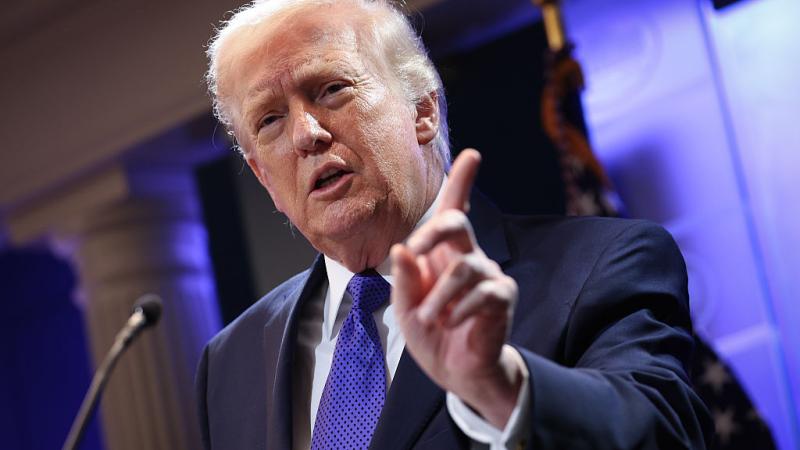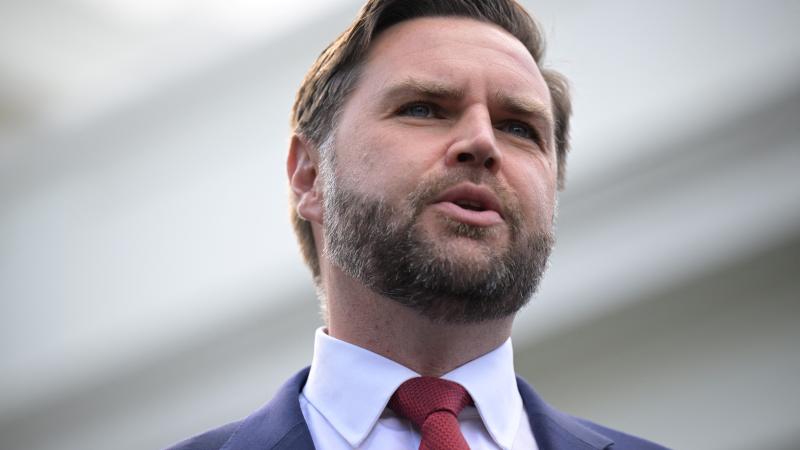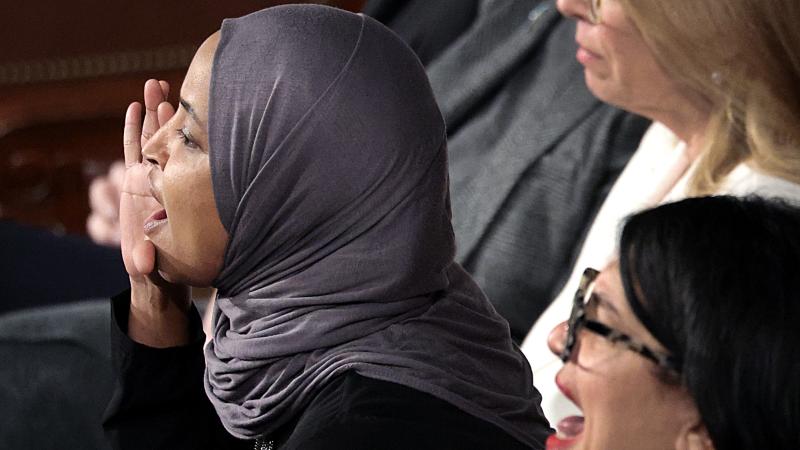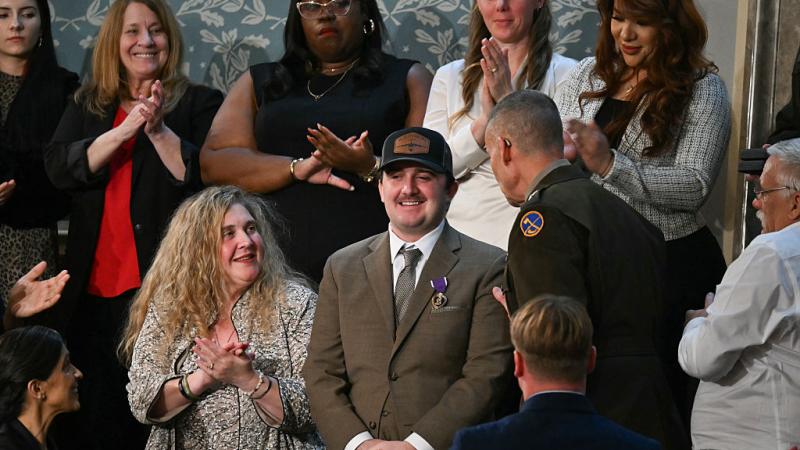Bragg’s witnesses may be undercutting the case against Trump as latest testimony sinks key claim
So far, the witnesses in the former president’s ‘hush money’ trial seem to be undermining the Manhattan DA’s case.
Since the so-called Trump “hush money” trial started three weeks ago, Manhattan District Attorney Alvin Bragg has called a handful of high-profile witnesses in his case against former President Donald Trump who have appeared to contradict Bragg's central claims.
Hope Hicks – a former communications aide for Trump – last week delivered testimony that undercut Bragg’s main charge, that Trump orchestrated the “hush money” payments to women claiming they had affairs with him to improperly influence the outcome of the 2016 election.
But Hicks was not the first witness to poke holes in Bragg’s case and to call into question the prosecution’s key witness, Michael Cohen.
Two other witnesses – David Pecker, the CEO of the National Inquirer who helped “capture and kill” the affair stories, and Keith Davidson the former lawyer to Stormy Daniels to whom hush money was paid – each gave testimony challenging the facts contained in the indictment.
Then on Monday, former Trump organization controller Jeffrey McConney testified that his former boss did not personally direct him to make any of the alleged hush money payments.
In Bragg's indictment, he alleges the former president, now a 2024 GOP presidential candidate, had knowledge of and orchestrated the scheme.
Hicks told the court that her former boss was primarily motivated by sparing his wife, Melania Trump, from having to deal with the public attention that would come from accusations that her husband had an affair with an adult film actress.
“I don't think he wanted anyone in his family to be hurt or embarrassed by anything that happened on the campaign," Hicks said under cross examination from Trump’s lawyers, according to Business Insider. "He wanted them to be proud of him."
The testimony appeared to cast doubt on Bragg’s claim that then-2016 presidential candidate Trump was primarily concerned with swaying the election outcome.
The testimony was one of many that have “contradicted the basis for prosecution,” says legal expert Jonathan Turley, a professor of law at George Washington University Law School.
Hicks’ testimony also undercut Bragg’s key witness Cohen, the former Trump attorney and fixer who is set to testify against his former boss at the Manhattan trial.
Cohen was the one who organized the payments to Daniels, a former porn actress, and Karen McDougal a former Playboy model, before the election to prevent them from taking their stories public.
“He was not looped in on the day-to-day,” Hicks said of Cohen and the presidential campaign.
“He went rogue at times, it was fair to say?” Emil Bove, lawyer for Trump, asked her.
“Yes,” she answered. "I used to say that he likes to call himself a fixer or Mr. Fixit. But it was only because he first broke it that he was Mr. Fixit."
Cohen faces scrutiny of his own past actions and reliability, Just the News previously reported.
His own statements to his former lawyer, with whom he waived attorney-client privilege, show he repeatedly insisted to his attorney that he had no incriminating evidence on Trump related to the hush money payments to Daniels.
Cohen was also sentenced to three years in prison for various crimes born of the scheme to pay off Daniels and for lying to Congress.
Before the trials, Cohen infamously claimed he would “take a bullet for the president,” yet as the investigations into his conduct accelerated, he decided to flip on his former boss and cooperate in multiple investigations, including the Mueller probe and others directed at the 2016 campaign and Trump family members.
Cohen blamed Trump for leading him down a “path of darkness” after his sentencing. One of Cohen’s attorney’s requested leniency in light of his client's cooperation against his former boss.
Yet, one attorney with the Southern District of New York stated Cohen “didn’t come anywhere close to assisting this office in an investigation” and that his charges “portray a pattern of deception, of brazenness and of greed."
Pecker's testimony also raised doubts about Bragg’s clean narrative.
He told jurors that his relationship with Trump dated back long before the 2016 election and the allegations by Daniels and McDougal were brought to him. He testified that the relationship dated to sometime before 2000.
“It was a great mutual, beneficial relationship,” Pecker said, describing the ratings boost that covering Trump would generate for his tabloid paper.
Pecker also told the court, under cross examination from Trump’s lawyers, that he provided similar services for several public figures over the career, not just for Trump. Former figures protected by Pecker include Tiger Woods, actor Mark Wahlberg, and Ari Emanuel, who sought to halt a story about an alleged affair involving his brother, Rahm Emanuel, an Obama administration alumnus who was running for Chicago mayor.
Pecker did acknowledge that Trump was concerned about how the stories could impact the election.
However, Turley believes this fact does not matter for Bragg’s overall case and that the length of Trump and Pecker's relationship weakens Bragg’s case.
“The question is not whether bad stories can impact a defendant on a political as well as a personal basis. The question is whether the denotation of these payments as legal expenses was intended to hide a crime,” Turley told Newsweek.
“While many of us are still unclear what that crime was, there are a myriad of reasons why such stories are killed with NDAs, including stories going back over a decade with Trump. NDAs are often treated by celebrities as a matter handled by private counsel to avoid bad press. Pecker acknowledged that fact,” he also said.
Davidson, who also represented McDougal, also gave testimony undercutting a key claim from Bragg’s case – that Trump was paying hush money misrepresented as a legal expense.
“It wasn't a payoff and it wasn't hush money ... it was consideration in a civil settlement agreement,” Davidson told the jury, according to Newsweek. Bragg has alleged that Trump’s payments to Daniels and McDougal violated the law because they were recorded falsely as business records.
Davidson also made contributions about Cohen’s character and behavior. In his testimony, he described Cohen’s conduct, calling him “aggressive,” said in one meeting he threw "a hostile barrage of insults, insinuations and allegations,” and said, "The moral of the story is nobody wanted to talk to Cohen.”
McConney, who served in that comptroller for over 20 years, also testified that Trump did not direct him to make any of the legal expenses payments to Cohen that Bragg alleges were falsely represented.
Trump’s participation in and knowledge of the alleged “hush money” payments are central to the Manhattan District Attorney’s case, according to the summary posted on his office’s website.
"President Trump did not ask you to do any of the things you just described ... correct?” Trump’s lawyer asked McConney of the reimbursements to Cohen.
“He did not," McConney answered.
Robert Hirschhorn, an attorney and jury consultant, told CNN that Bragg brought the “wrong guy” to the stand when he called McConney because the DA failed to establish the “crucial link” between the alleged crime and Donald Trump.
“The guy that prosecution ought to have up on the bars is Allen, who’s currently in the cross bars motel,” Hirschhorn told CNN, referring to Allen Weisselberg, the one-time CFO of the Trump Organization who is currently behind bars for falsely testifying in Trump’s civil fraud case.
But since Weisselberg is in a cell, the prosecution had to call McConney, the next highest ranking official in the operation.
“He’s the highest one up so far from the Trump Org. side. He has not provided that crucial ... link between the crime and the defendants either knowledge of it or ordering that the documents be falsified,” Hirschhorn said of McConney.
Still to come, Bragg plans to call Cohen himself to the stand, but he will be faced with significant credibility issues that have only compounded from the testimony of other witnesses in the case.
Other witnesses could include Daniels and McDougal, Robert Costello – Cohen’s one-time lawyer –and Trump White House secretaries or campaign officials.


